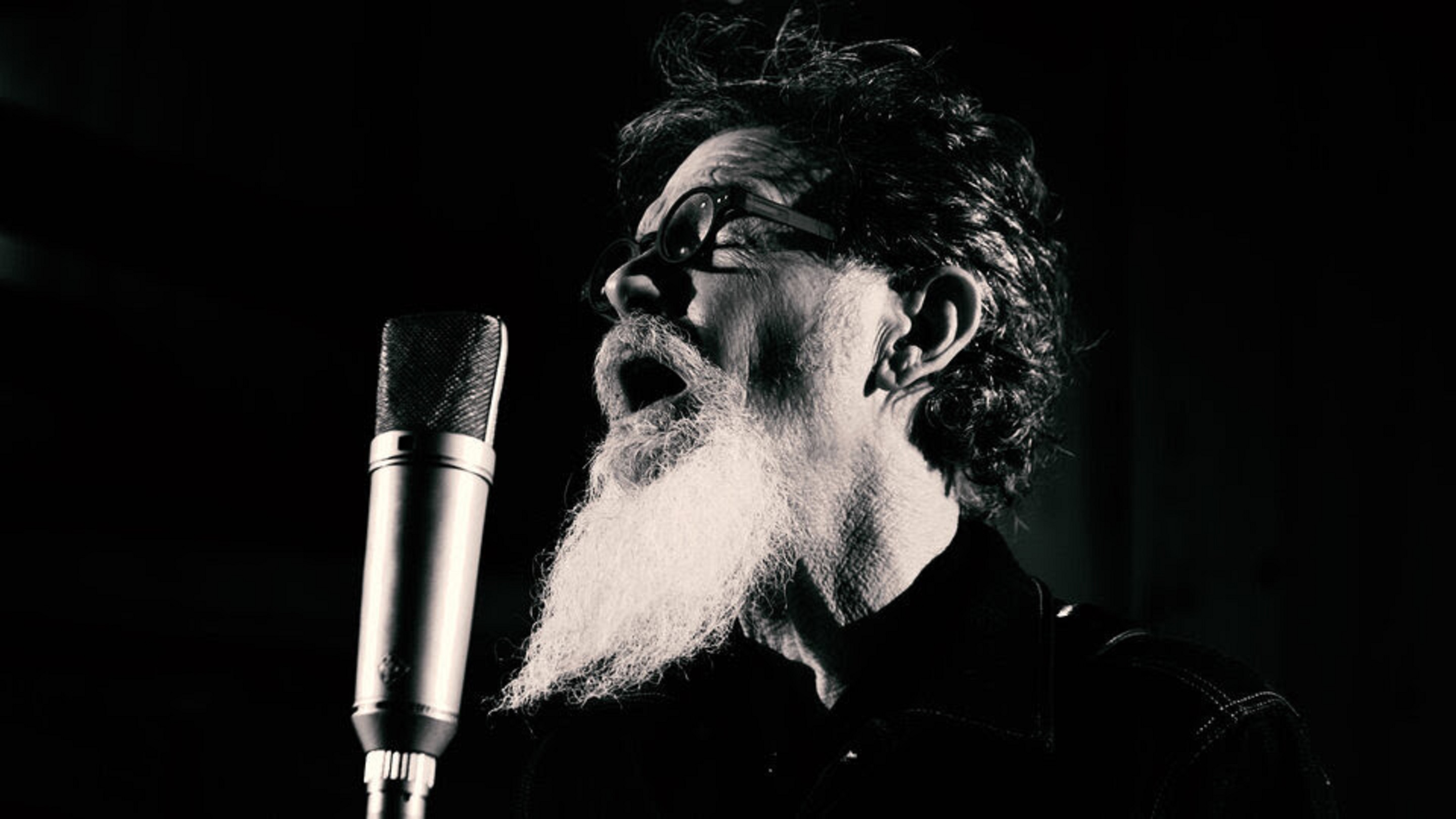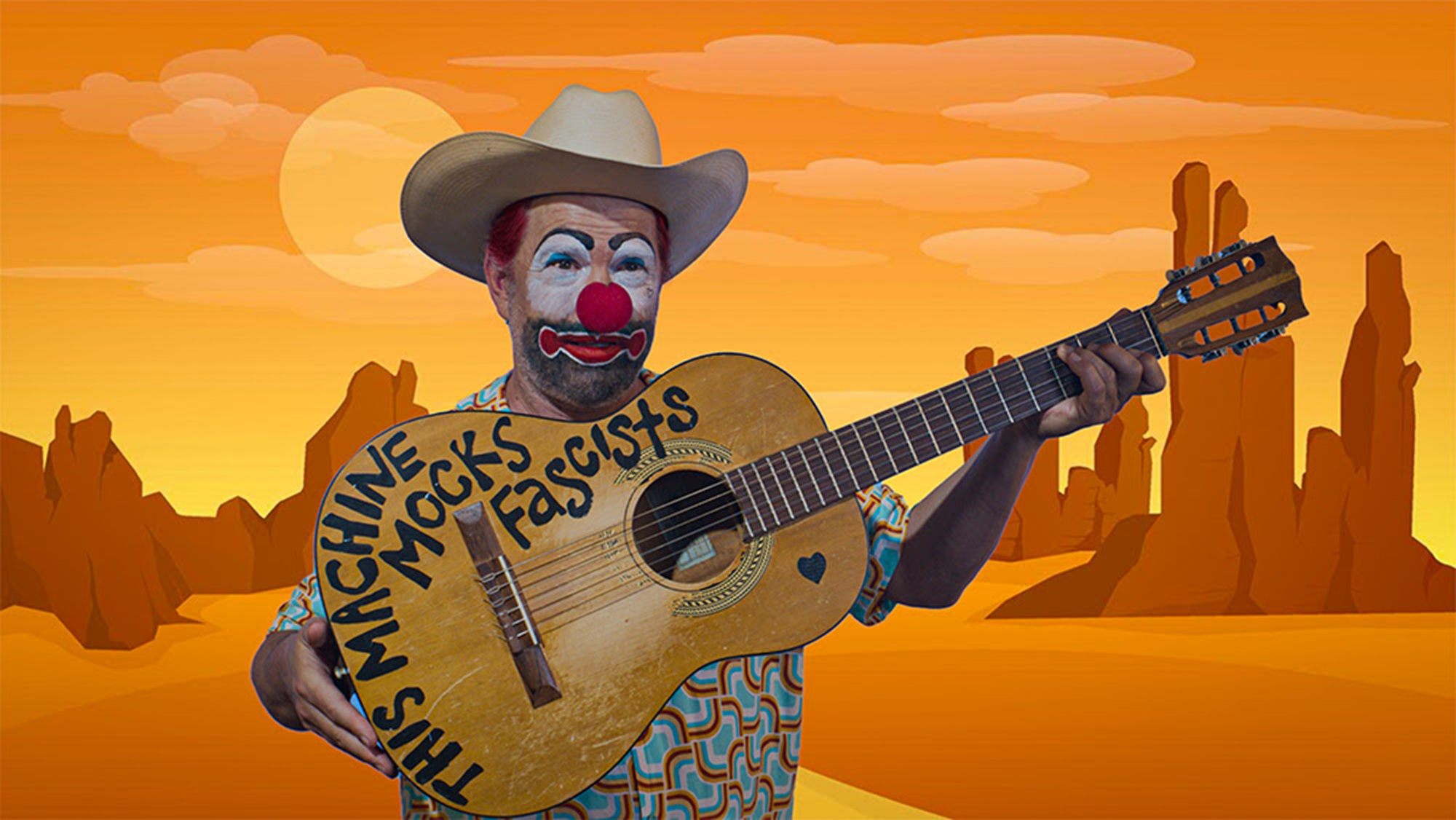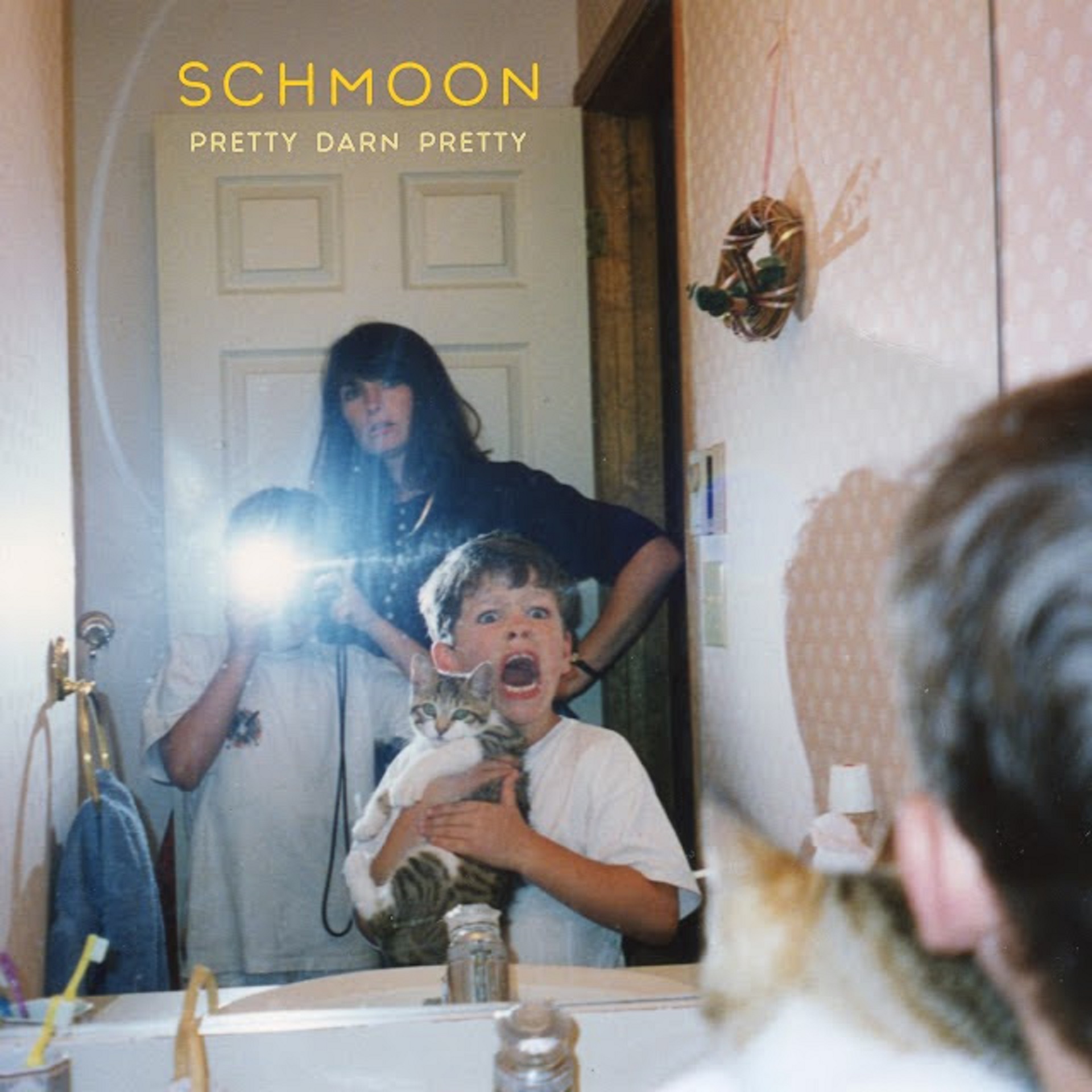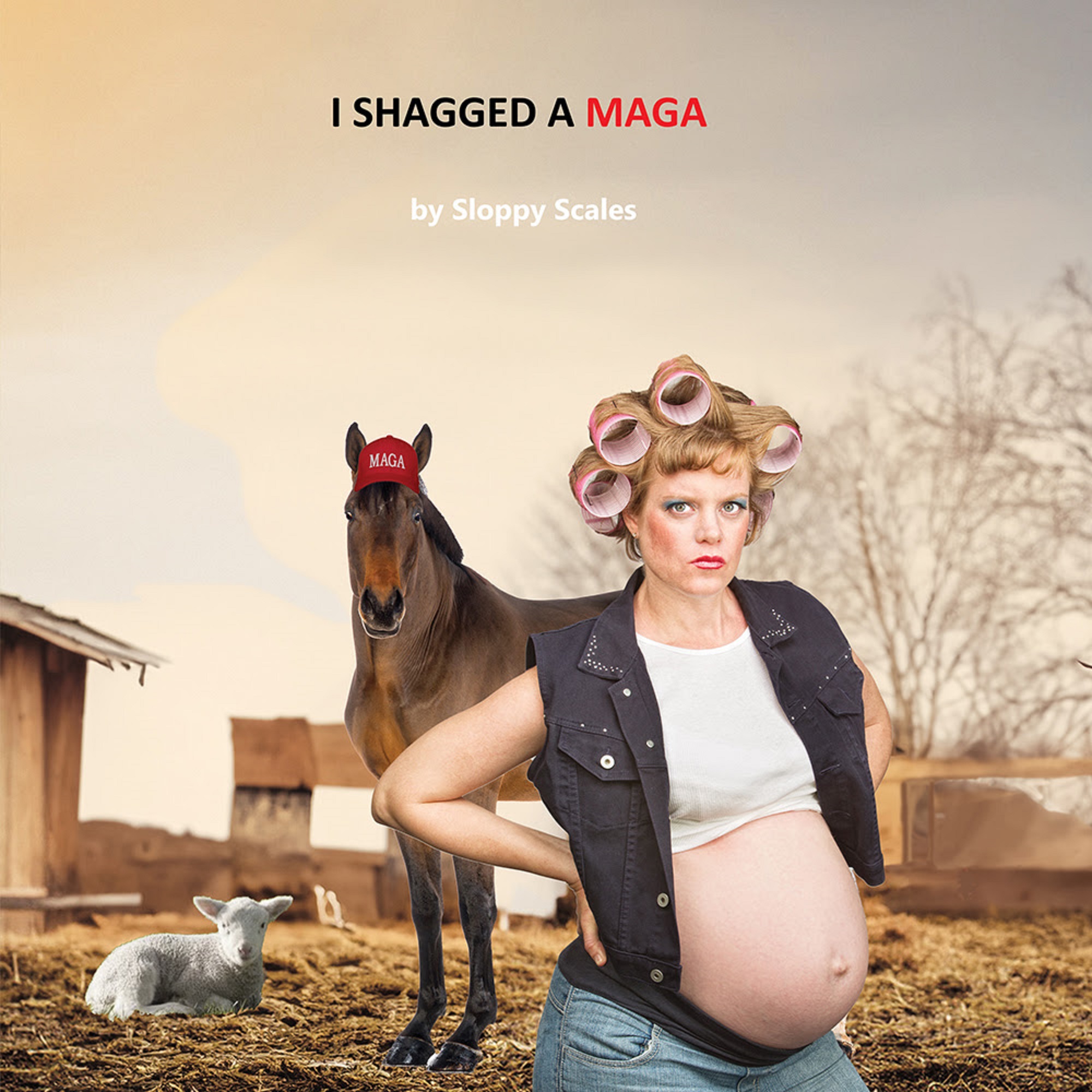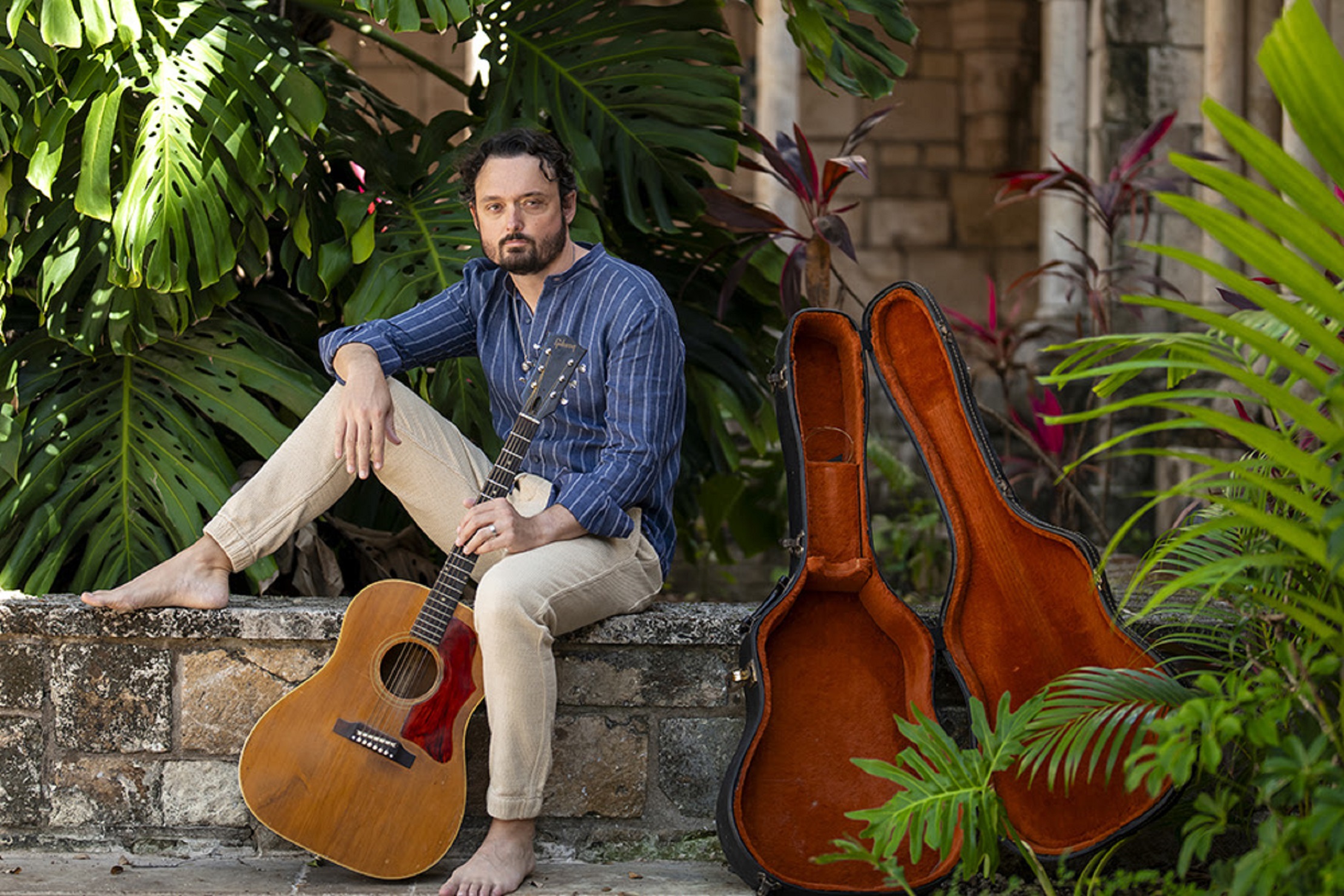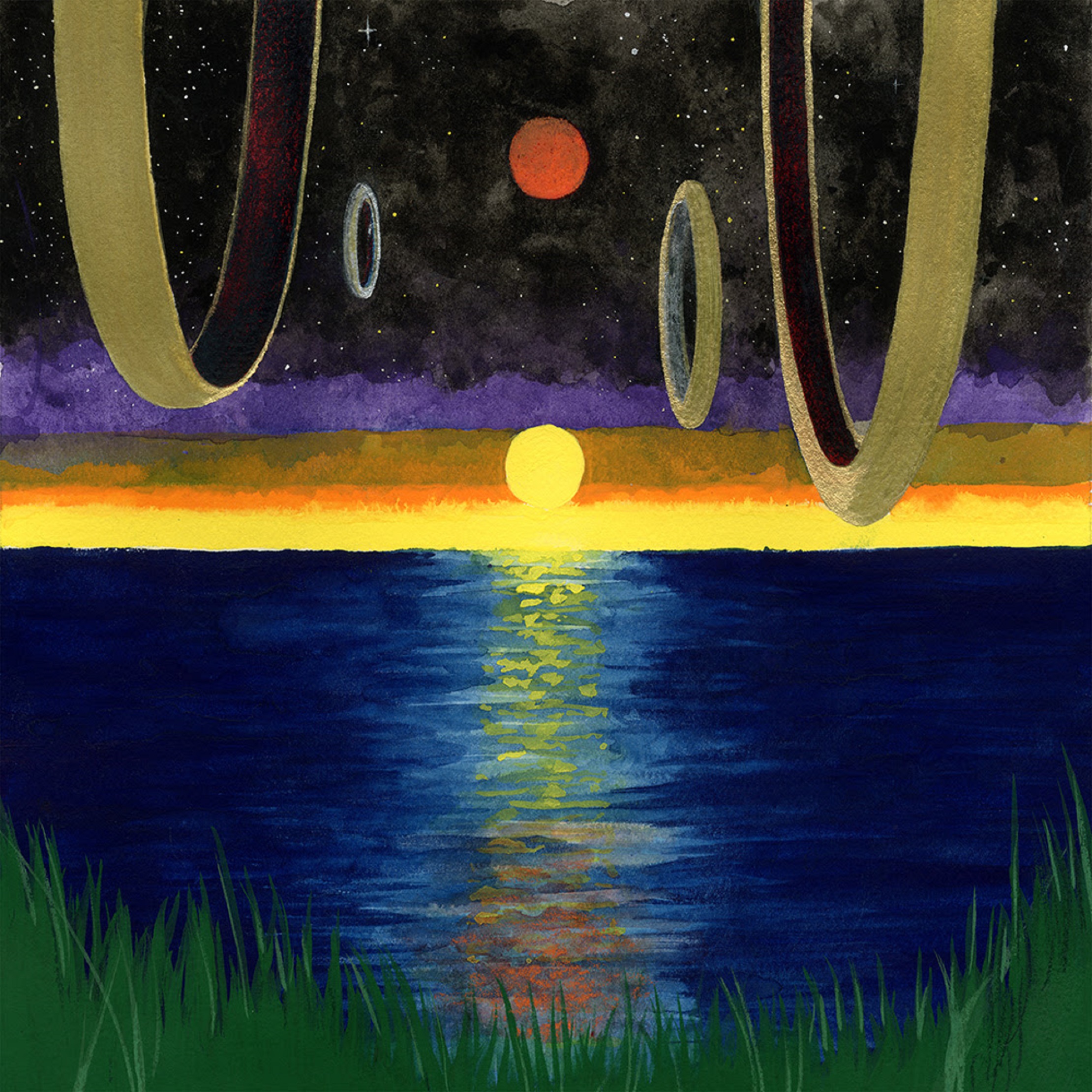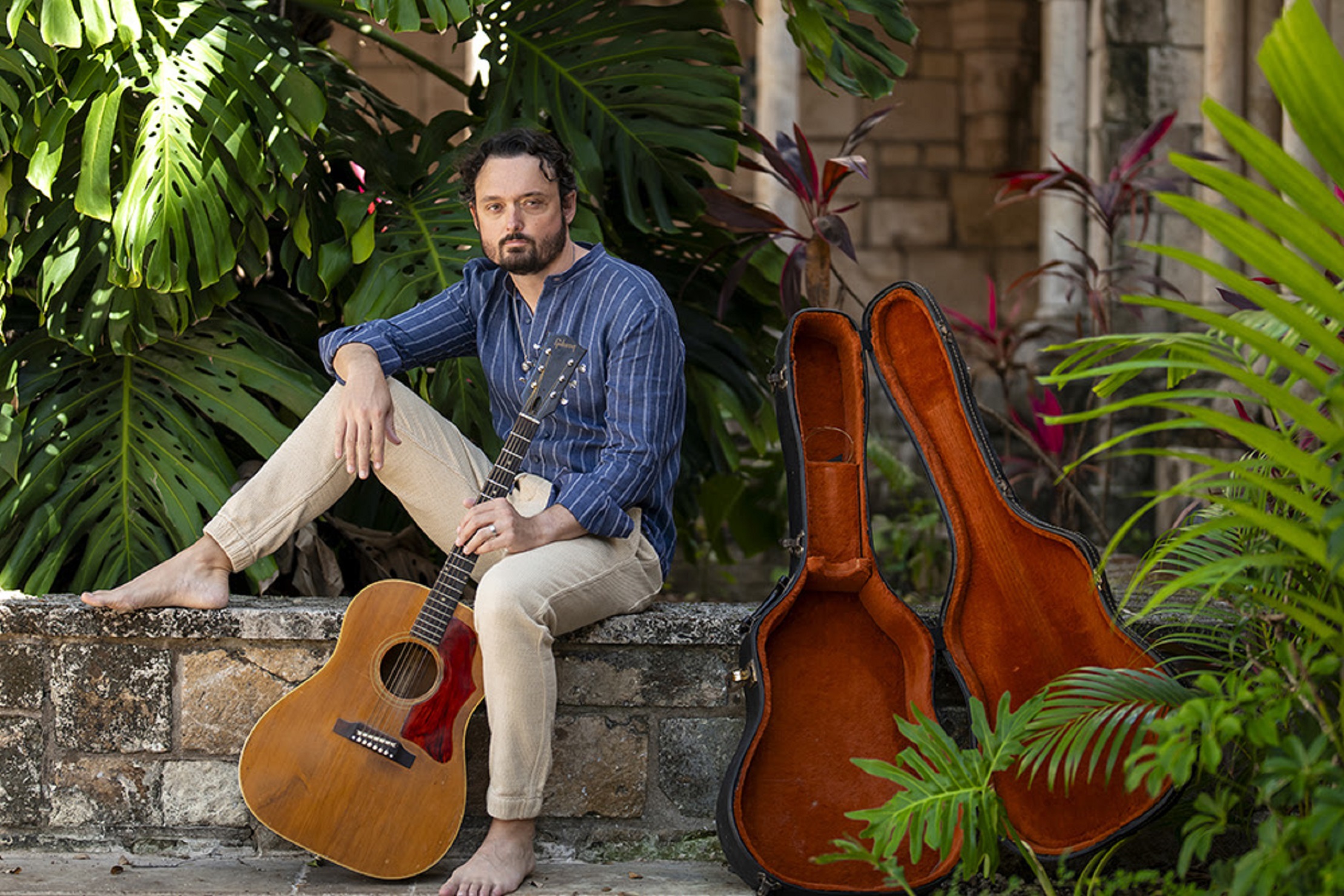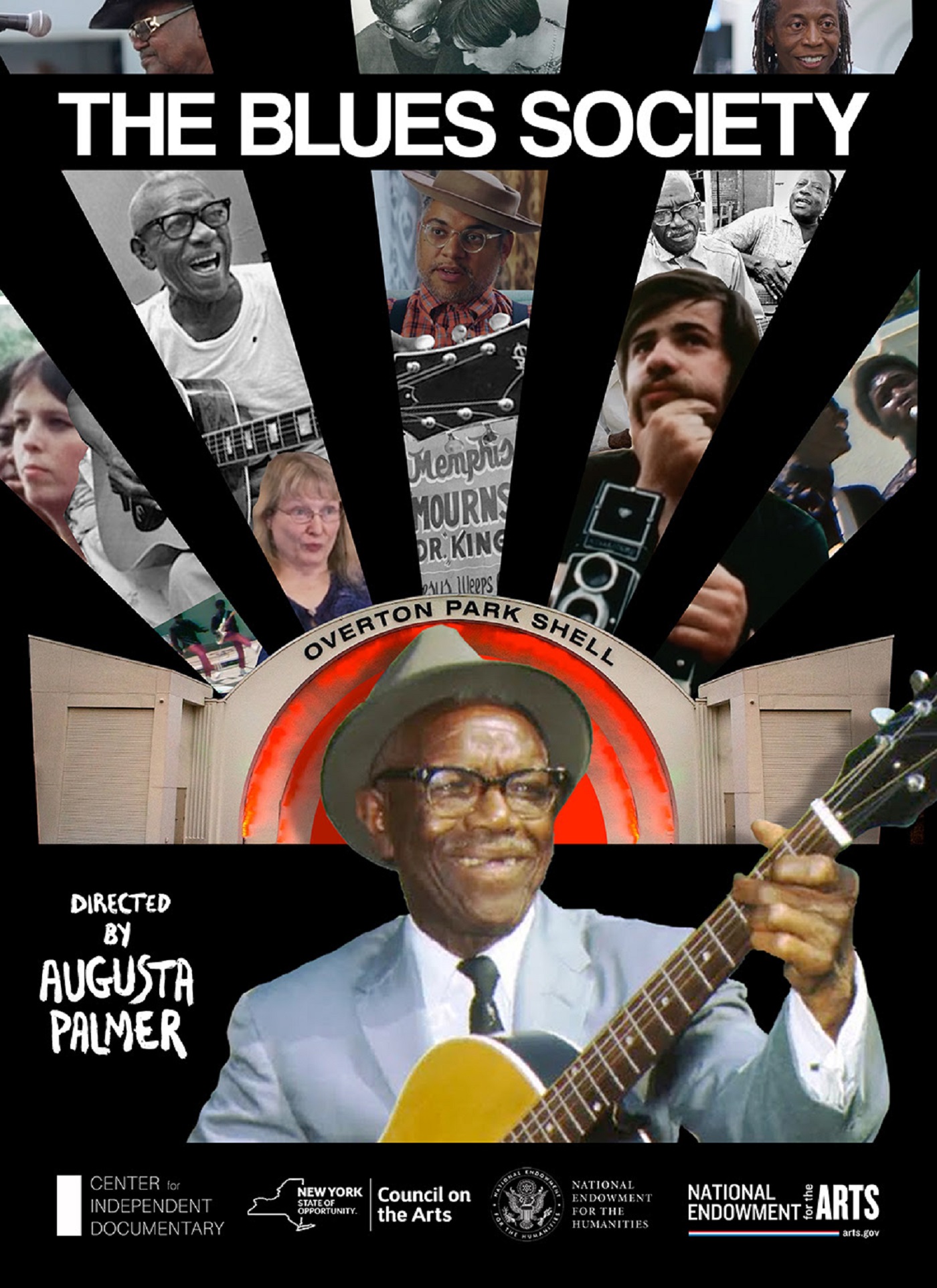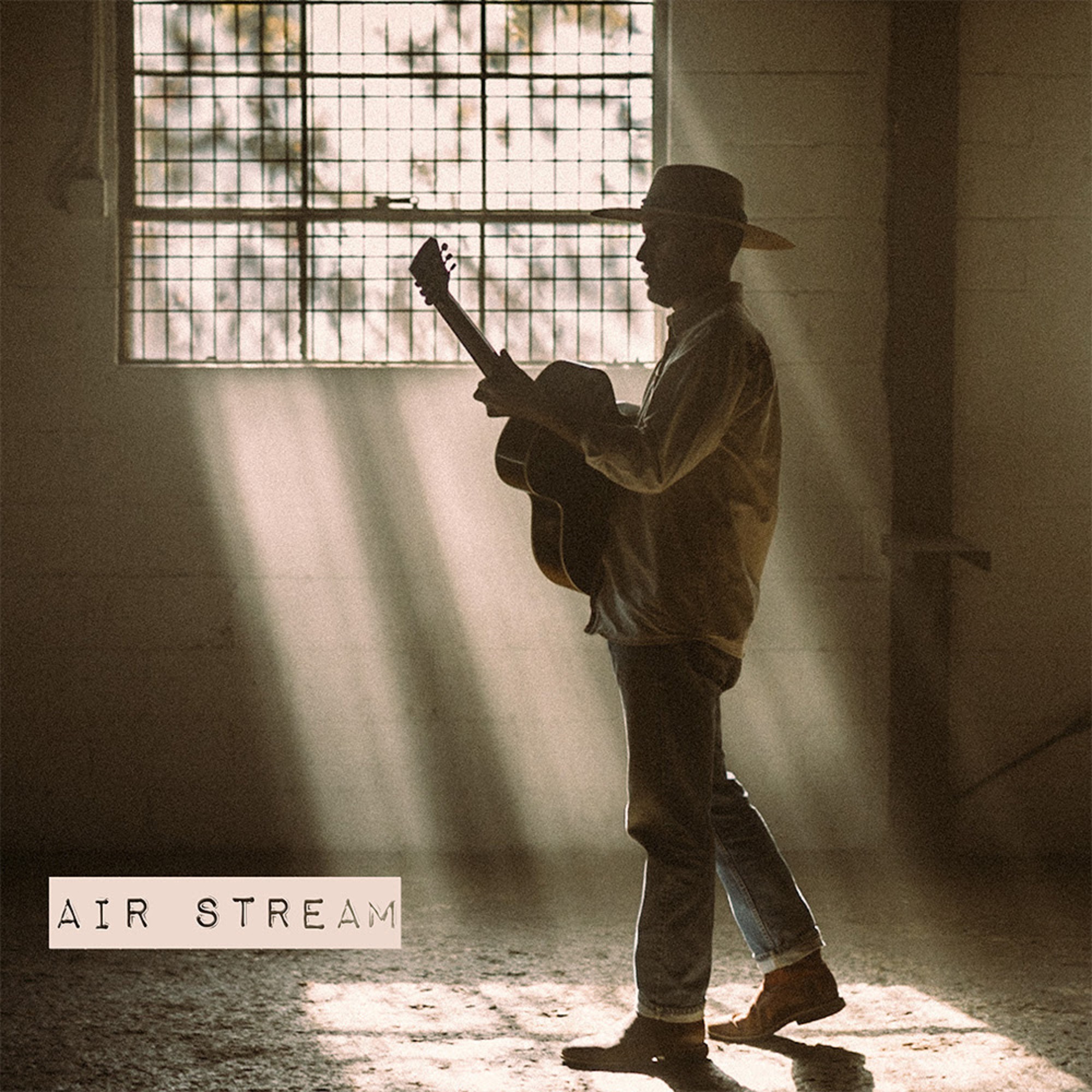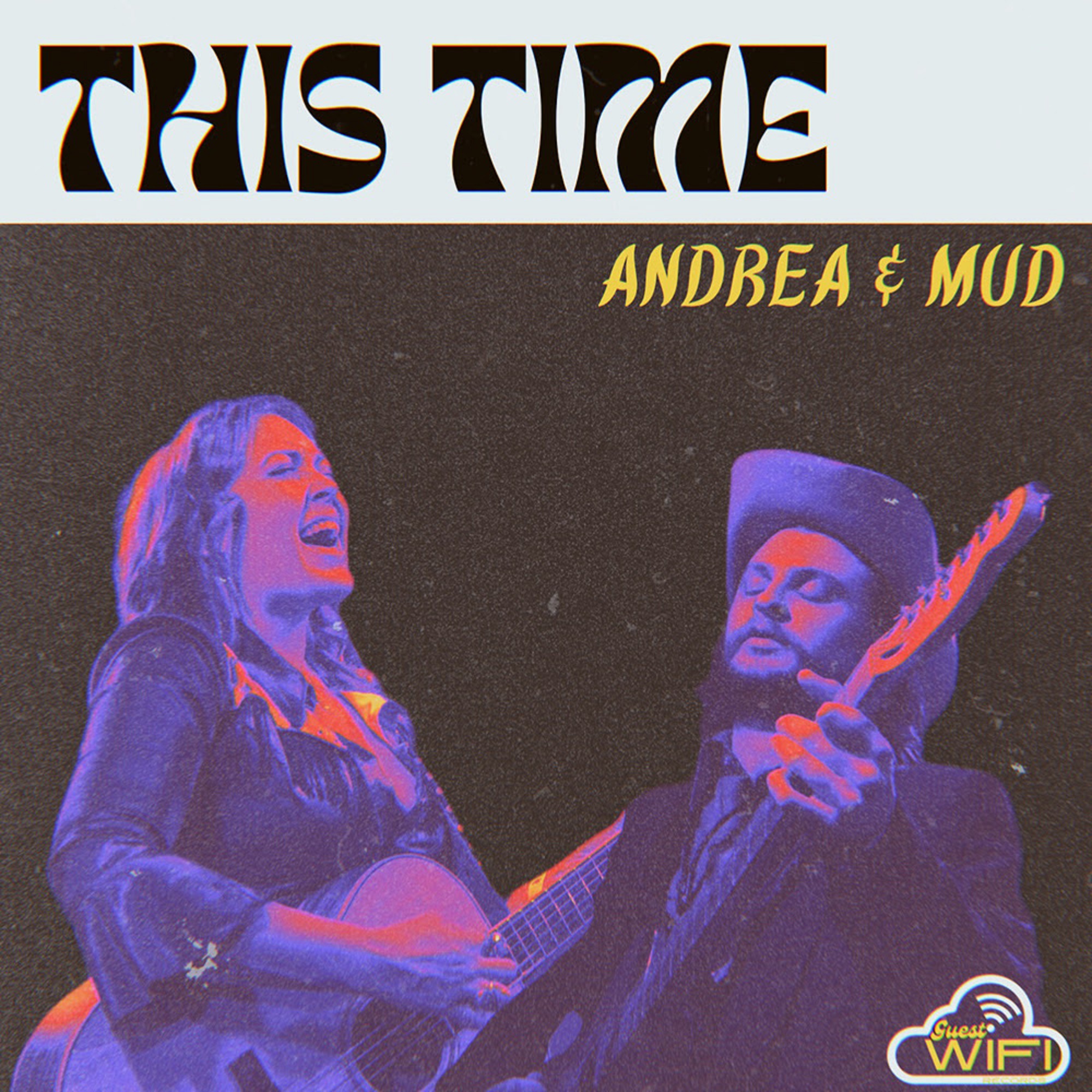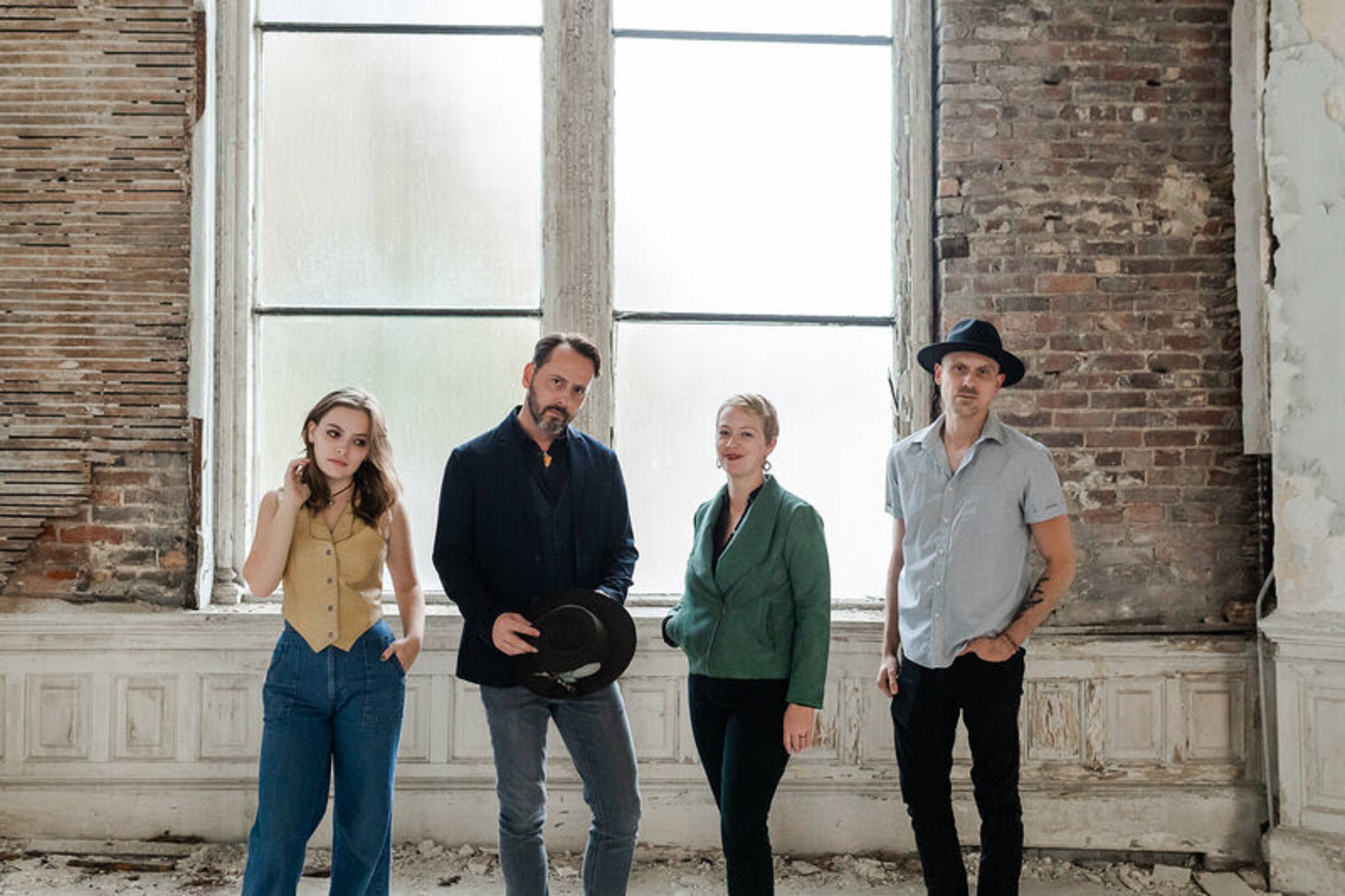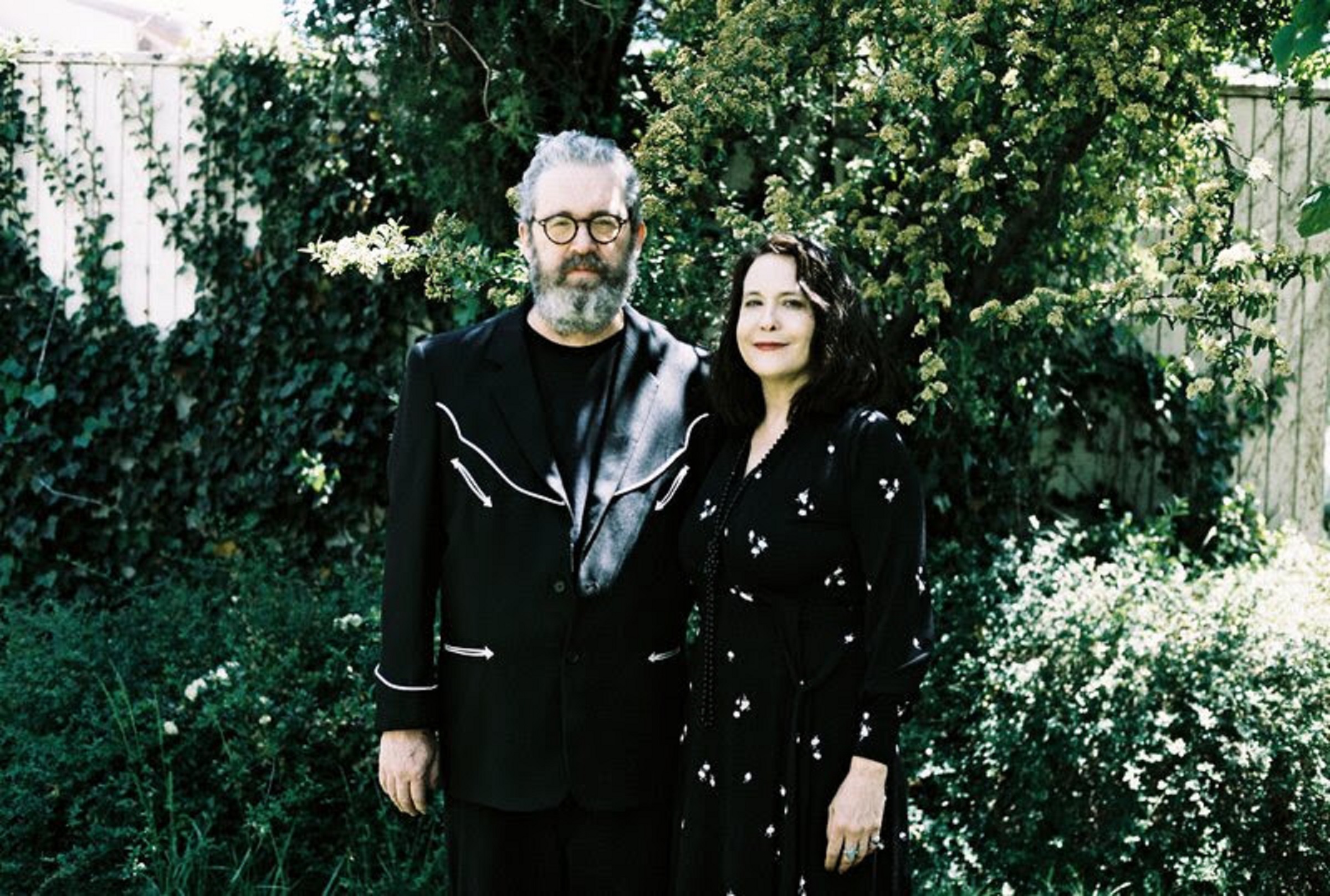“We can play a country church in Mississippi, or we can draw a crowd at a hipster club in Brooklyn. We connect with a wide-ranging audience,” says veteran musician Walter Parks, speaking of the music on his forthcoming album, The Unlawful Assembly (out Sept. 10 via Atomic Sound). “The joy, gratitude, pain and yearning in these songs is universally felt.”
After studying guitar under jazz guitarist Robert Conti, Parks was a sideman to the legendary Richie Havens for 10 years. He was part of a folk duo called The Nudes, with cellist Stephanie Winters, and has been part of an on-again, off-again band for several years now, called Swamp Cabbage.
Parks is known for his swampy style and gravelly vocals, as well as being an astute music historian. In 2020, he was invited by The Library of Congress to archive his research on and perform his arrangements of music made by homesteaders in the Okefenokee Swamp. Now living in St. Louis, MO, Parks originally grew up in Northeast Florida (or what he calls “the Georgia part of Florida”). “That was during the Woodstock era, and in spite of the peace and love aspects of that movement, I was bullied for being tall, skinny, short-haired, and also playing the ‘very uncool’ viola,” says Parks.
At the start of the pandemic, Parks created a Sunday morning radio series called “Hymns & Hollers” to explore a powerful and strange paradox about origins of spiritual music that he believed could unify and heal. The show has no religious agenda per se, but is more historical and philosophical in nature.
“As a way of enduring hell on Earth and yearning for a better life from the cruel bonds of slavery, African Americans created and sang spirituals, field hollers, code songs and work chants that often borrowed from the Biblical narratives and hymns of their oppressors. Those same spirituals, chants and hollers would soon inspire the great American roots music that followed – blues and jazz which would later inspire gospel, rhythm and blues, soul, folk and rock and roll. Ironically, as if coming full circle, more than a century after emancipation, I and millions of American youth would learn of the blues only because of rock and roll interpretations emanating from England – the country that was once command central for the slave trade and the source of many classic Christian hymns, which influenced the spirituals.”
Parks regards spirituals as a common denominator – an undeniable sonic glue born out of the bonds of slavery, now binding us all together for the common good as reimagined by The Unlawful Assembly, with collaborator/drummer/producer Steven Williams, Ada Dyer on vocals, Paul Frazier on bass, Michael Bellar on organ, and Andrae Murchison on trombone.
“Steal Away,” an Underground Railroad spiritual of Biblical origin, tributes The Mighty Clouds of Joy from the early 60’s. Inspired by Richie Havens’ version of “Follow The Drinking Gourd,” a “code song” reminded runaway slaves how to find and use The North Star. The requisite hymn “Amazing Grace” is a slave ship captain’s redemptive plea upon acknowledging the horrors that his chosen line of work had enabled. “Early In The Mornin''' tributes Alan Lomax’s original field recording of a Parchman Farm chain-gang chanting in order to strike a piece of track rail in unison.
“Georgia Rice'' is based on an Okefenokee Swamp folktale: During the years when Florida was Spanish, if a slave could escape the rice plantations along the southeast Georgia coast, outrun bounty hunters while heading southwest, evade the natural perils of The Okefenokee Swamp, and then find passage across The St. Mary’s River, they could then make a deal for freedom in exchange for converting to Catholicism, and serving in the Spanish army. Many runaways found their way to Fort Mose, near St. Augustine, to live amongst other former slaves who had endured escape odysseys of their own.
European families - mostly of Scottish descent - began inhabiting islands in the Okefenokee during the mid-1800’s. They imported festive fiddle reels and they developed their own relationship with the banjo – an instrument of African origin. They brought spiritual music in the form of shaped-note and sacred harp singing. And they brought hollers - beautiful rolling, yodel-like melodies sung by hunters - through the piney woods, to make notice of an approach to home, after having spent several days out in the wilderness.
“Georgia Rice” begins with a holler, but the lyrics are sung from the perspective of a runaway slave who, being pursued by bounty hunters, hears a white man hollerin’ far off in the pineywoods. A great risk, the slave heads towards the white man figuring that no slave tracker would be hollering. “Georgia Rice” overlays two periods in history to convey the hopeful premise that when no one’s watching, we do the right thing. In this case, the white swamper, also at great risk, helps the runaway find The St Mary’s.
“Shoulder It,” Parks’ co-write with Stan Lynch, the original drummer for Tom Petty and The Heartbreakers, addresses a core obstacle to societal progress – the convenient perspective that the challenges of any one culture, demographic or race are solely its own to overcome.
The American imagination pictures the realm of spirituals, blues and jazz in Mississippi or Louisiana but Parks’ inspiration for The Unlawful Assembly comes from southeast Georgia’s Okefenokee Swamp. A hundred years after the first slaves fled into the swamp from coastal rice plantations, their descendants returned to lay railroad tracks for The Hebbard Lumber Company. Walter theorizes that during this time, the lyrics of work chants sung in unison by black men while arduously hammering steel, began to find their way into the “old-fashioned songs” and hollers sung by white swampers.
Jacksonville, in northeastern Florida is regarded by many as the epicenter of southern rock because The Allman Brothers Band and Lynyrd Skynyrd formed there. Walter believes that there is a subtle black-influenced “funky” feel (as it was labeled in the seventies) in southern rock that differentiates it from country music and he believes that the music of the nearby Okefenokee was probably a significant factor in this distinguishing aspect.
Parks’ gifts are not only limited to music: “It’s really not possible to just focus on one form of art in the modern age. When sometimes the balance tilts too far away from music, I find refuge in woodworking, studying French, acting and painting in a modern-art style. My wife and I also present concerts.”
He’s a storyteller and yet, himself, an immovable character. He’s the real deal. He’s Walter Parks.





